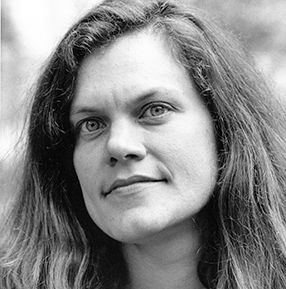Mennonites
We keep our quilts in closets and do not dance. We hoe thistles along fence rows for fear we may not be perfect as our Heavenly Father. We clean up his disasters. No one has to call; we just show up in the wake of tornadoes with hammers, after floods with buckets. Like Jesus, the servant, we wash each other's feet twice a year and eat the Lord's Supper, afraid of sins hidden so deep in our organs they could damn us unawares, swallowing this bread, his body, this juice. Growing up, we love the engravings in Martyrs Mirror: men drowned like cats in burlap sacks, the Catholic inquisitors, the woman who handed a pear to her son, her tongue screwed to the roof of her mouth to keep her from singing hymns while she burned. We love Catherine the Great and the rich tracts she gave us in the Ukraine, bright green winter wheat, the Cossacks who torched it, and Stalin, who starved our cousins while wheat rotted in granaries. We must love our enemies. We must forgive as our sins are forgiven, our great-uncle tells us, showing the chain and ball in a cage whittled from one block of wood while he was in prison for refusing to shoulder a gun. He shows the clipping from 1916: Mennonites are German milksops, too yellow to fight. We love those Nazi soldiers who, like Moses, led the last cattle cars rocking out of the Ukraine, crammed with our parents—children then— learning the names of Kansas, Saskatchewan, Paraguay. This is why we cannot leave the beliefs or what else would we be? why we eat 'til we're drunk on shoofly and moon pies and borscht. We do not drink; we sing. Unaccompanied on Sundays, those hymns in four parts, our voices lift with such force that we lift, as chaff lifts toward God.
Credit
From Sleeping Preacher by Julia Kasdorf. Copyright © 1992 by Julia Kasdorf. All rights are controlled by the University of Pittsburgh Press, Pittsburgh, PA 15261. Used by permission of the University of Pittsburgh Press.
Date Published
01/01/1992

